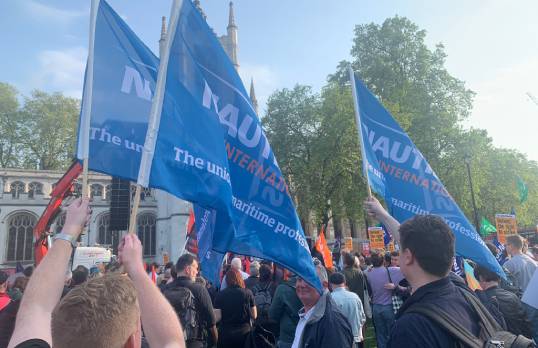- Topics
- Campaigning
- Careers
- Colleges
- Community
- Education and training
- Environment
- Equality
- Federation
- General secretary message
- Government
- Health and safety
- History
- Industrial
- International
- Law
- Members at work
- Nautilus news
- Nautilus partnerships
- Netherlands
- Open days
- Opinion
- Organising
- Podcasts from Nautilus
- Sponsored content
- Switzerland
- Technology
- Ukraine
- United Kingdom
- Welfare

The UK government will accept that the right to strike is protected by the International Labour Organisation (ILO) Freedom of Association and Protection of the Right to Organise Convention 87 – reversing the position of the previous Conservative government.
In a letter to Trades Union Congress (TUC) general secretary Paul Nowak, secretary of state for business and trade Jonathan Reynolds and secretary of state for work and pensions Liz Kendall said that they will withdraw the previous government’s negative evidence that it provided to the International Court of Justice, which is currently poised to decide on whether the right to strike of workers and their organisations is protected under ILO Convention 87.
‘The government firmly supports the mission to the ILO and values its role in bringing businesses, trade unions and governments together to develop and enhance international labour standards,’ the ministers wrote.
The previous UK government was rebuked by the ILO Committee on Freedom of Association for weak labour laws and employment standards, which the ILO said had facilitated P&O Ferries' mass-sacking of 786 maritime professionals in March 2022.
The statement from the two ministers follows on from an announcement in August that the new government will repeal the Strikes (Minimum Service Levels) Act when it passes its forthcoming Employment Rights Bill, which it considers to unduly restrict the right to strike and undermine good industrial relations.
In December 2023, Nautilus International joined hundreds of union representatives at the TUC at a special congress in London, where they unanimously voted to campaign against this Act, which obliges unions to work with employers during strike periods to ensure a minimum level of service is guaranteed, undermining the impact of effective industrial action. The law also means workers could be forced to attend work during strike periods and face the sack if they do not comply.
Nautilus director of legal services Charles Boyle said: ‘The repeal of the anti-strikes legislation is extremely welcome, as will be the reversal of the rules on minimum voting turn-outs in industrial action ballots. It is hoped that after decades of anti-trades union legislation, the tide is now turning favour of workers.’

What is the UK Employment Rights Bill?
The Institute of Employment Rights (IER) has put together a handy resource hub including a briefing on what the Bill proposes, what it considers are 'worrying trapdoors', suggested amendments, and other resources on the Employment Rights Bill (ERB) 2024.
Images: Getty Images
Tags
